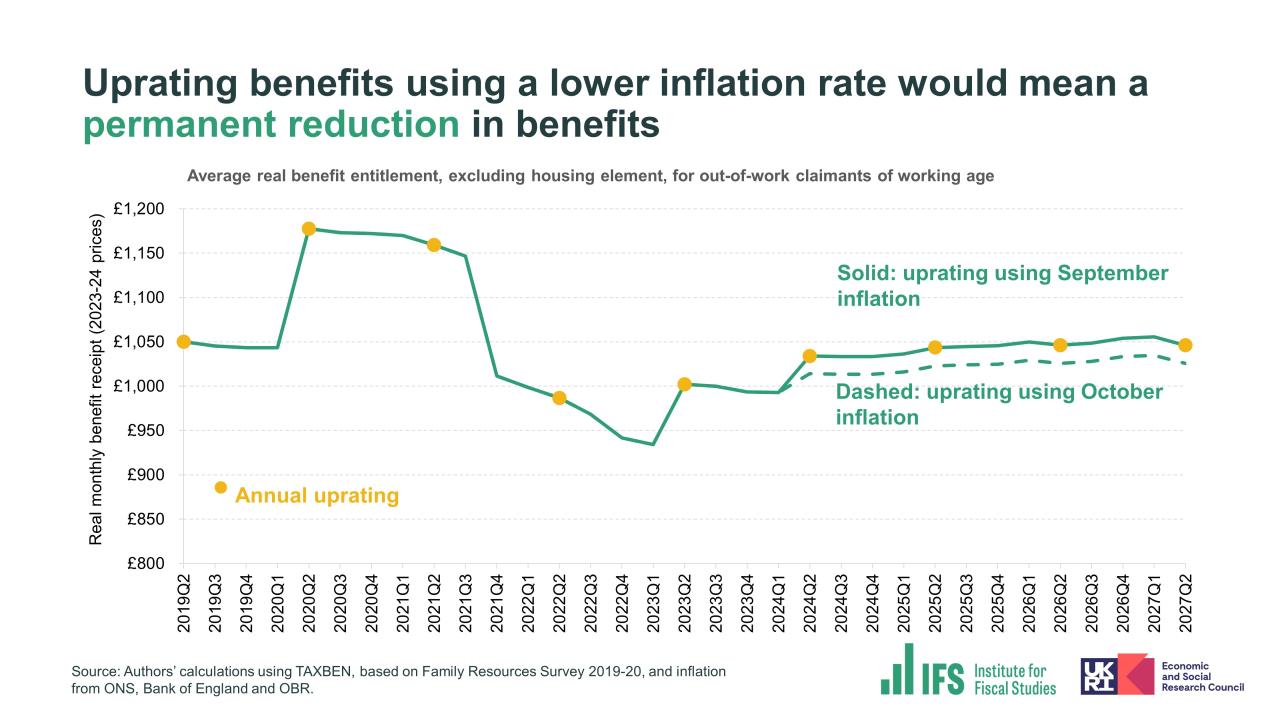Normally benefit values are uprated each April with the inflation
rate of the previous September. It has been reported that,
for the April 2024 uprating, the government are considering
using the October rather than September inflation rate. This
implies uprating by 4.6% rather than 6.7%.
- Because benefits are uprated using a lagged measure
of inflation, real benefit values decline for a time
when inflation rises, and rise during periods when inflation
falls. As a result, real benefits levels have so far fallen as a
result of the spike in inflation during the cost of living
crisis. By default they would eventually regain their previous
value, due to the reverse effect as inflation falls – though
remarkably they are not set to return to their pre-pandemic value
until 2026, even without this potential change in uprating month.
- Using the October rather than September inflation rate would
cut working-age benefits spending by about £3 billion in
2024–25, largely by reducing entitlements for the
8 million working-age households receiving
means-tested or disability benefits.
- Whether or not the switch to October uprating were made
permanent or a one-off, making this switch at this time would
represent a permanent cut to the size of the
benefits system. Essentially this is because the inflation that
occurred between September 2022 and October 2022 would never
factor in to the uprating of benefits in any year.
Sam Ray-Chaudhuri, a Research Economist at IFS
said:
“Using the October rather than September inflation rate to uprate
benefits would save the government money, by cutting incomes for
millions of low-income working-age people. Importantly, both
effects would be permanent, whether or not the move to basing
annual benefit increases on the October inflation rate were to be
retained in subsequent years. This implies that real benefit
levels would not just take several years to regain their
pre-pandemic values, due to the rather arcane lagged method for
increasing them – they would never get back to where they were,
without subsequent changes in policy.”

